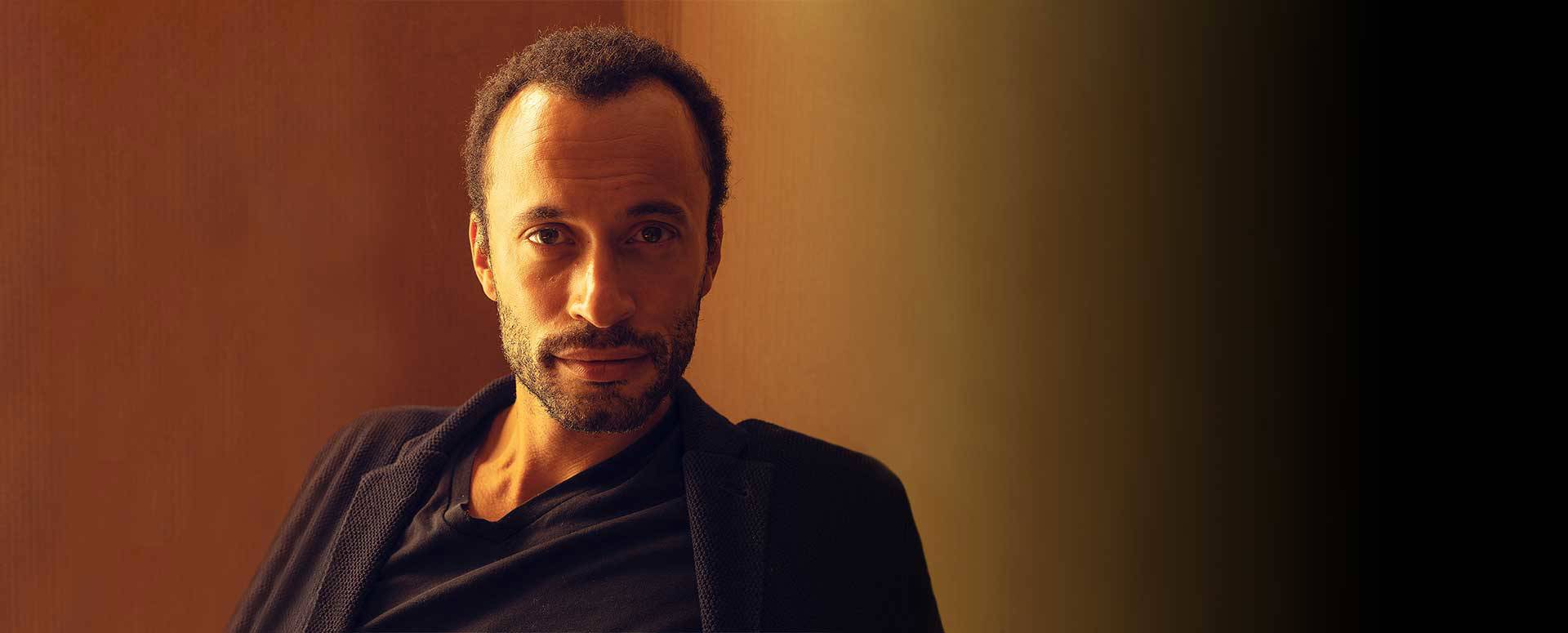
Thomas Chatterton Williams
Cultural Critic, Best-Selling Author & The Atlantic Contributing Writer
Thomas Chatterton Williams
Cultural Critic, Best-Selling Author & The Atlantic Contributing Writer
Biography
A cultural critic for extraordinary times, Thomas Chatterton Williams brings his insightful perspective to subjects of race, Black identity and history, cancel culture, social justice, and inequality in America and beyond. His thought-provoking talks explore some of the most urgent questions confronting American culture today—intertwined with his own family’s compelling multigenerational story of transformation from what is called Black to what is perceived to be white.
Called “a remarkable new literary voice,” Williams is the author of two highly acclaimed books, including Self-Portrait in Black and White: Family, Fatherhood and Rethinking Race, a TIME “Must Read” book, and Losing My Cool: Love, Literature, and a Black Man’s Escape from the Crowd. Together, these works established him as a leading voice on race, identity, and belonging in contemporary America, blending memoir with cultural criticism to challenge conventional narratives with clarity, intellectual honesty, and humanity.
His most recent book, Summer of Our Discontent, offers a timely meditation on freedom of thought and the tension between principle and partisanship in the wake of 2020. Reflecting on the convergence of racial justice protests, the pandemic, and an increasingly polarized public discourse, Williams examines how moments of crisis can reshape institutions, norms, and public trust. Through examples ranging from racial justice activism and social media to public health and healthcare debates, he illustrates how questions of expertise, credibility, and social responsibility became deeply contested, revealing fractures in civic life that extend far beyond any single issue.
A visiting professor of the humanities and senior fellow at the Hannah Arendt Center at Bard College, Williams is a contributing writer at The Atlantic. Previously a columnist at Harper’s and a contributing writer for The New York Times Magazine, his work has also appeared in The New Yorker, the London Review of Books, Le Monde, and numerous other publications, and has been collected in The Best American Essays and The Best American Travel Writing.
A 2022 Guggenheim fellow and recipient of the Berlin Prize from The American Academy in Berlin, he was also a 2019 New America national fellow and is currently a visiting fellow at AEI.
Speaker Videos
Has Cancel Culture Gone Too Far? | Amanpour and Company
Big Ideas At Aspen Ideas Festival
On Race | Bill Maher
On Cancel Culture and Race | Bill Maher
Speech Topics
Free Thought in a Fractured Age: Why Open Debate Still Matters
In this timely keynote, Thomas Chatterton Williams examines why open inquiry, dissent, and intellectual courage are essential to a healthy democracy—and why they are increasingly under threat. Drawing on his work as a cultural critic and his role in helping organize A Letter on Justice and Open Debate, Williams explores the rise of cancel culture, ideological conformity, and the chilling effect they have on journalism, academia, workplaces, and public life. He unpacks how fear of public shaming and professional consequences has reshaped the way people speak, listen, and engage across difference. More importantly, Williams offers practical guidance for how to engage in difficult conversations without retreating into silence or moral absolutism. This talk challenges audiences to defend ideological diversity while learning how to debate with clarity, humility, and respect.
Audiences will learn:
- Understand how cancel culture and conformity limit free thought and open debate.
- Learn practical ways to engage in difficult conversations without fear or escalation.
- Gain confidence to practice intellectual courage while listening across differences.
Summer of Our Discontent: Understanding the Forces Reshaping Society
In this timely and thought-provoking keynote based on The Summer of Our Discontent, Thomas Chatterton Williams examines the cultural forces reshaping how we think, speak, and relate to one another. He traces how social justice movements, social media, political polarization, COVID-19, and the aftermath of George Floyd’s murder have transformed institutions ranging from media and education to art, policing, and everyday language. At the center of his analysis is a warning that liberalism—the foundation of a free and open society—is under strain from ideological rigidity on both the left and the right. With clarity and nuance, Williams challenges audiences to resist simplistic narratives and moral absolutism. This talk is a call to reclaim intellectual freedom, principled dissent, and open dialogue in an age of cultural discontent.
Audiences will learn:
- Understand the key cultural and political forces that reshaped American society over the past decade.
- Learn why ideological conformity threatens free thought, creativity, and democratic debate.
- Gain tools to engage disagreement with nuance, curiosity, and principle rather than partisanship.
Culture, Power & the Stories We Tell About Ourselves
In this illuminating keynote, Thomas Chatterton Williams explores how societies create shared stories—and how those stories shape our understanding of history, identity, and progress. Drawing on cultural criticism, journalism, and historical analysis, he examines how media, political movements, and institutions influence which narratives are elevated, simplified, or forgotten. Rather than focusing on debate or dissent, Williams looks at the long-term consequences of storytelling itself: how collective memory is formed and how power determines what becomes accepted truth. He challenges audiences to think critically about the narratives they inherit and repeat, especially around race, justice, and social change. This talk invites listeners to develop a more thoughtful, historically grounded approach to understanding culture and public life.
Audiences will learn:
- Understand how cultural narratives are created and shaped by power and institutions.
- Learn how media and storytelling influence collective memory and social understanding.
- Gain tools to question dominant narratives with historical context and ethical awareness.

)
)
)
)